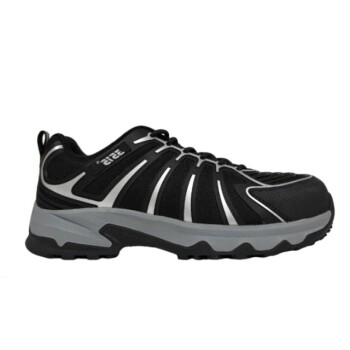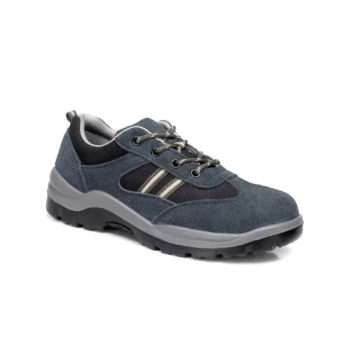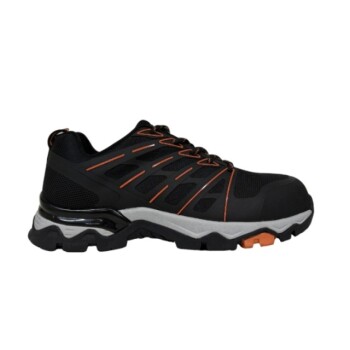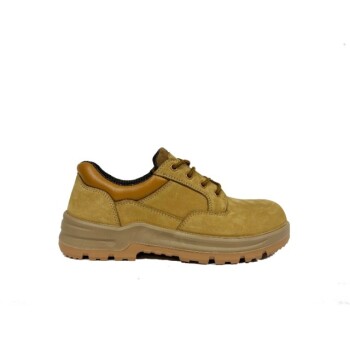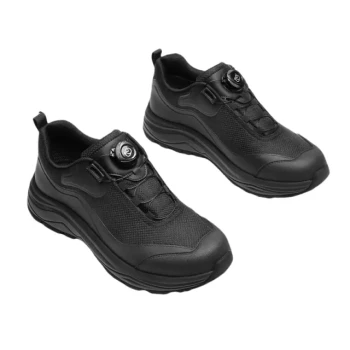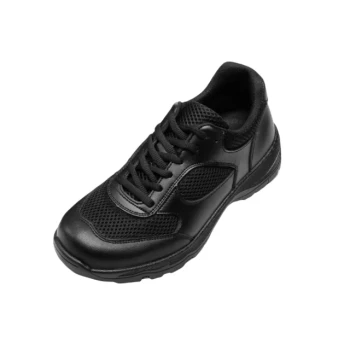Choosing the right safety toe cap is a critical decision based on your specific work environment. Steel toes offer maximum durability at the lowest cost but are heavy and conductive. Aluminium provides a lighter metal alternative. Composite toes are the lightest, non-conductive option ideal for temperature extremes and metal-free zones, but they are more expensive and may need replacement after a single major impact.
The central trade-off is between the proven, cost-effective durability of metal (steel and aluminium) and the modern, lightweight comfort and non-conductive properties of composite materials. The best choice isn't about which is 'better,' but which is right for your specific workplace hazards and daily tasks.
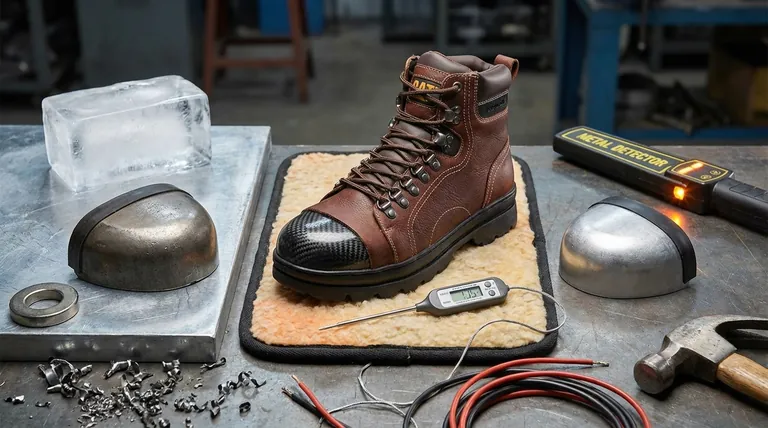
The Core Factor: Weight and Comfort
The weight of your boot directly impacts fatigue over a long workday. This is often the most noticeable difference between toe cap materials.
Steel: The Traditional Heavyweight
Steel is the heaviest option. While providing exceptional strength, this added weight can contribute to leg fatigue and a heavier-feeling boot by the end of a shift.
Aluminium: The Lighter Metal Alternative
Aluminium toe caps are significantly lighter than steel, reducing the overall weight of the boot by up to 30%. This provides a noticeable improvement in comfort without sacrificing the benefits of a metal cap.
Composite: The Featherweight Champion
Composite toe caps are the lightest option available. Made from non-metallic materials like carbon fiber, Kevlar, or plastic, they drastically reduce boot weight, making them a superior choice for workers who are on their feet all day.
Navigating Your Environment: Conductivity and Detection
The material of your toe cap interacts with your surroundings, influencing safety and convenience in ways beyond simple impact protection.
Thermal Conductivity (Heat & Cold)
Steel is a highly conductive material, meaning it will readily transfer cold or heat to your feet. This can be a major source of discomfort in extreme weather conditions.
Composite materials, by contrast, are non-conductive. They provide excellent insulation, keeping your feet warmer in the cold and cooler in the heat.
Electrical Conductivity
This is a critical safety consideration. Both steel and aluminium are metals and will conduct electricity, making them unsuitable for certain electrical work environments.
Composite toe caps do not conduct electricity, making them the essential choice for electricians or anyone working near live circuits.
Metal Detection
If you frequently pass through metal detectors for work, steel and aluminium will consistently trigger them. This can cause daily delays and frustrations.
Composite toe caps are 100% metal-free, allowing you to pass through security screenings without needing to remove your footwear.
Understanding the Trade-offs: Durability and Cost
While all approved safety toes meet the same impact and compression safety standards, their long-term performance and price differ significantly.
The Impact on Durability
Steel has the highest tensile strength and resistance to deformation. It can withstand heavy impacts and may even endure multiple minor impacts while remaining structurally sound.
Composite and aluminium toe caps are engineered to protect you from a single, significant impact. After such an event, the internal structure may be compromised, and the boots should be replaced to ensure continued safety.
The Investment: Cost Comparison
There is a clear hierarchy in price. Steel is the most cost-effective material, making it a budget-friendly and widely available option.
Aluminium sits in the middle of the price range. Composite toe caps are the most expensive due to the advanced materials and manufacturing processes involved.
Making the Right Choice for Your Work
Select your safety toe by matching the material's core strengths to your most important daily requirement.
- If your primary focus is maximum durability and low cost: Steel is the classic, reliable choice for heavy-duty construction and industrial sites.
- If your primary focus is a metal-free environment or electrical hazard safety: Composite is the only suitable option, providing complete non-conductivity.
- If your primary focus is all-day comfort and reduced fatigue: Composite or aluminium offers a significant weight advantage over steel.
- If your primary focus is working in extreme temperatures: Composite's non-conductive properties provide superior insulation against both heat and cold.
By aligning the material's properties with your daily hazards, you ensure both optimal safety and comfort on the job.
Summary Table:
| Feature | Steel | Aluminium | Composite |
|---|---|---|---|
| Weight | Heaviest | Lighter than steel | Lightest |
| Temperature Conductivity | High (conducts heat/cold) | High (conducts heat/cold) | Low (insulates) |
| Metal Detection | Triggers detectors | Triggers detectors | Metal-free |
| Electrical Safety | Conductive | Conductive | Non-conductive |
| Durability | Highest (multiple impacts) | Good (single major impact) | Good (single major impact) |
| Cost | Lowest | Mid-range | Highest |
Ready to Equip Your Team with the Right Safety Footwear?
As a large-scale manufacturer, 3515 produces a comprehensive range of safety boots and shoes for distributors, brand owners, and bulk clients. Our production capabilities encompass all types of safety footwear with steel, aluminium, and composite toe caps, ensuring you get the perfect combination of protection, comfort, and value for your specific workforce needs.
Let's discuss your requirements and get a quote for your next order.
Contact our team today to find the ideal safety toe solution!
Visual Guide
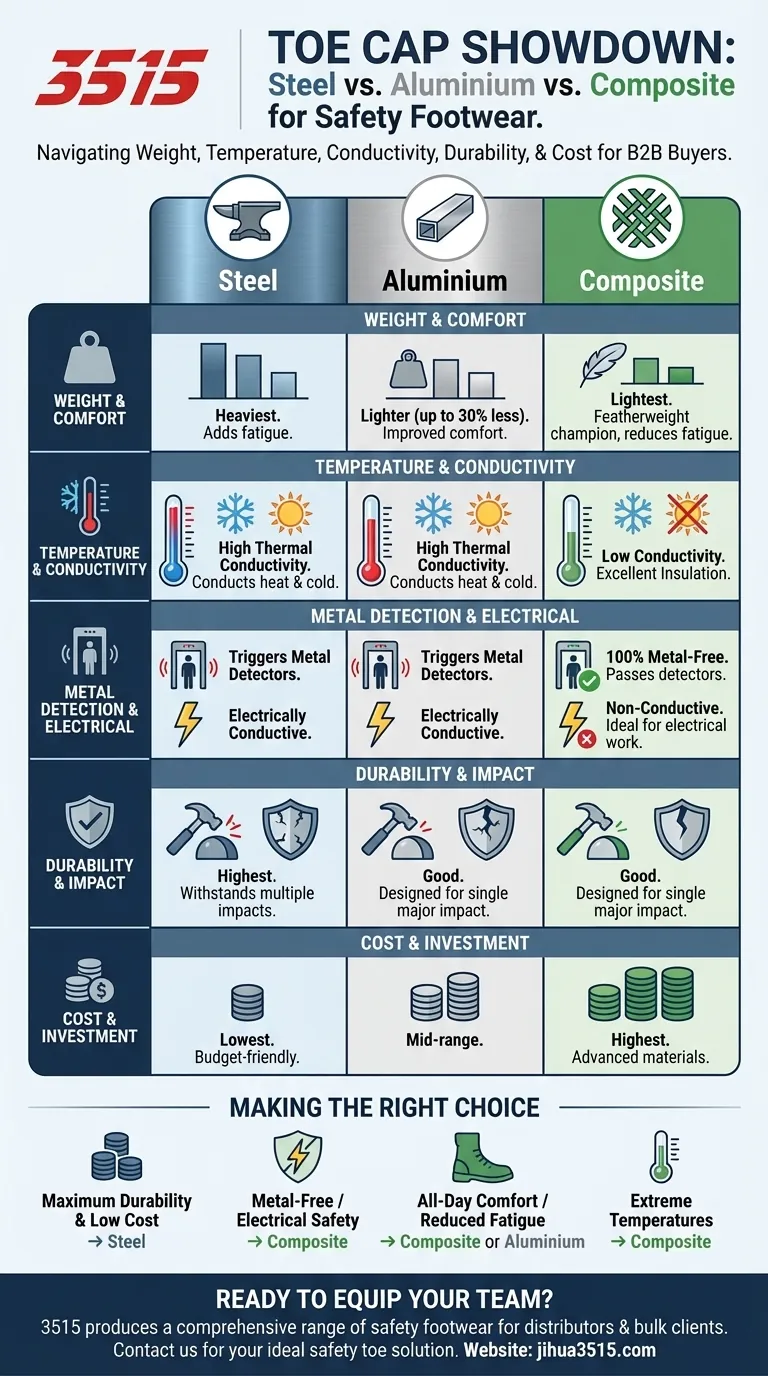
Related Products
- Wholesale Leather Safety Boots with Customizable Protective Toe
- Wholesale Durable Breathable Safety Boots Custom OEM Manufacturer
- Wholesale Safety Footwear Manufacturer for Bulk & Custom OEM Orders
- Puncture-Resistant Velcro Safety Boots for Wholesale & Custom Manufacturing
- Premium KPU Athletic Safety Shoes for Wholesale
People Also Ask
- What are the key protective features of safety shoes? Essential Guide for Workplace Safety
- What are the advantages of KPU moulding material for labour protection shoes? Superior Durability & Comfort
- How often should safety toe boots be replaced? A Guide to Lifespan & Critical Signs
- How does puncture-resistant (PR) safety footwear work? The Ultimate Guide to Underfoot Protection
- What are the requirements for a protective toe cap? Meet ASTM F2413 Standards for Maximum Safety




